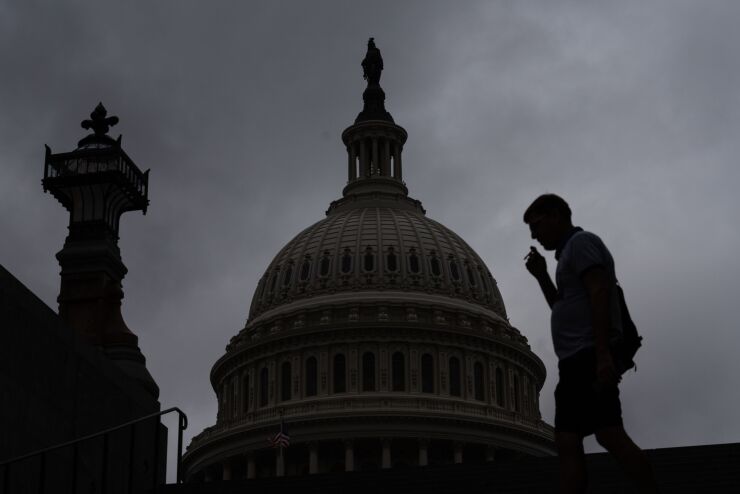A House
The bill's sponsors planned to introduce the legislation on Wednesday, but multiple House officials familiar with Democrats' discussions said any floor action on the bill almost certainly is shelved, at least for now. Lawmakers are scheduled to leave Washington this week until after the November election.

A spokesperson for Majority Leader Steny Hoyer said late Tuesday that more details on the stock trading bill would be released as they become available.
Other officials, who did not want to be identified in discussing private conversations, described deep divisions among top party leaders over details of the bill, which was not released until late Tuesday night. Democrats in competitive races, meanwhile, oppose parts of the legislation and don't want to take a politically difficult vote just weeks before the election, the officials said. A group of senators is drafting their own legislation, but it hasn't been unveiled and the Senate doesn't have any immediate plans to take up the bill.
But other Democrats are urging Speaker Nancy Pelosi and her lieutenants to act before the midterm elections on good-governance legislation taking aim at conflicts of interest at the highest levels of the government. Forcing a vote now has the added bonus of putting Republicans on the spot, they said.
Top Democrats plan to gather Wednesday in a meeting that could decide the path forward.
The bill's trade and ownership restrictions cover commodities, futures, cryptocurrency or other digital assets as well as stocks. Also covered are interests acquired through derivatives, including options.
The legislation would require public officials to divest current holdings or put them in a blind trust. It would also tighten disclosure requirements and increase penalties for violations.
The bill would apply to the spouses and dependent children of the listed officials, as indicated last week to lawmakers in an outline by House Administration Chair Zoe Lofgren, a California Democrat.
That has been a point of contention, with some attention falling on Pelosi's husband, Paul Pelosi. Some of his recent
A Pelosi spokesperson didn't immediately respond to requests for comment on the bill.
According to the bill's text, the "supervising ethics office" for each government branch would be called on to issue regulations implementing the the bill's provisions within 180 days of the bill's enactment.
Congressional leaders have faced intensifying calls in the past year to adopt new rules governing lawmakers' financial activities. A New York Times






